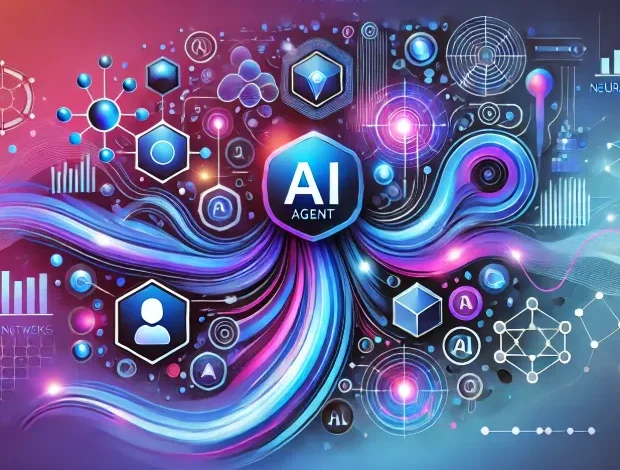AI Agents in Action: Exploring the Real-World Impact of Agentic AI

What Makes Agentic AI Different?
Picture an AI system that doesn’t simply respond to your instructions but can independently analyze situations, make decisions, and adjust its approach as conditions change. This is the promise of Agentic AI—a next-generation form of artificial intelligence that is pushing businesses into a new era of automation and adaptability. Unlike conventional AI, which typically focuses on predefined tasks, Agentic AI operates with autonomy. It applies advanced learning models and decision-making capabilities to handle complex environments and evolving business needs.
At its foundation, Agentic AI is built on systems that enable virtual agents to perform a variety of tasks, from process optimization and predictive analytics to customer engagement and workflow automation. These agents do more than follow static rules; they learn from experience, continuously refining their strategies to deliver better outcomes over time.
One of its most compelling advantages is seamless integration into existing operations. Whether it’s managing supply chains or responding to customers, these AI-driven agents provide both efficiency and scalability. In customer service, for example, an AI agent can resolve inquiries without human intervention, while improving future interactions through ongoing learning.
As industries become increasingly digitized, businesses that adopt Agentic AI early will gain a significant edge, benefiting from higher productivity, faster innovation, and more adaptive strategies.
Why Businesses Are Turning to Agentic AI
The introduction of Agentic AI into everyday operations is transforming how organizations function. By automating complex, time-consuming processes, businesses reduce costs and minimize the risk of human error. These intelligent systems can take on repetitive tasks, allowing employees to focus on strategic priorities that require creativity and judgment.
Another key benefit is hyper-personalization. Agentic AI can analyze customer behavior patterns, preferences, and historical data to create tailored experiences at scale—something previously unattainable. This level of customization fosters loyalty and drives engagement, giving companies a competitive advantage.
Flexibility and scalability are also major draws. As businesses expand, Agentic AI solutions can easily adapt to new markets and increased demand without requiring major infrastructure changes. For organizations aiming to future-proof their operations, this adaptability makes Agentic AI an indispensable asset.
Real-World Applications Across Industries
Agentic AI is no longer just a concept—it’s actively shaping multiple sectors:
- Healthcare: AI agents assist in patient management by predicting health risks, suggesting treatment plans, and improving scheduling efficiency.
- Finance: Agentic AI detects fraud in real time, manages compliance, and provides deeper insights for investment strategies.
- Retail: From managing inventory to creating personalized shopping experiences, AI-driven systems enhance both backend efficiency and customer engagement.
- Manufacturing: Intelligent agents monitor production lines, forecast maintenance needs, and streamline supply chains, cutting downtime and boosting output.
- Entertainment: Personalized recommendations powered by AI keep audiences engaged while improving user satisfaction.
- Transportation: Agentic AI plays a critical role in developing self-driving technologies and optimizing traffic systems for greater safety and efficiency.
These examples showcase the versatility and impact of Agentic AI. By adopting this technology, businesses gain smarter operations and stronger market positions.
The Road Ahead: What to Expect from Agentic AI
Looking forward, Agentic AI is set to become a cornerstone of business strategy. Unlike static systems, these autonomous agents evolve with data, meaning their value grows over time. Companies can expect faster decision-making, reduced operational bottlenecks, and increased agility in responding to market shifts.
One emerging trend is predictive strategy. Advanced agent models can analyze massive datasets, forecast industry trends, and provide actionable recommendations. This enables businesses to make proactive decisions rather than reactive ones—a critical advantage in competitive markets.
Agentic AI will also reshape workforce dynamics. By handling routine and data-heavy tasks, these systems free up employees to focus on higher-level problem-solving, innovation, and creative work. This human-machine collaboration can drive significant productivity gains and open the door to entirely new business models.
In short, the future belongs to organizations that embrace Agentic AI. Its ability to automate intelligently, personalize interactions, and deliver real-time insights positions it as a transformative force for modern enterprises. Businesses that act now will not only enhance efficiency but also unlock new opportunities for growth in an ever-evolving digital world.







